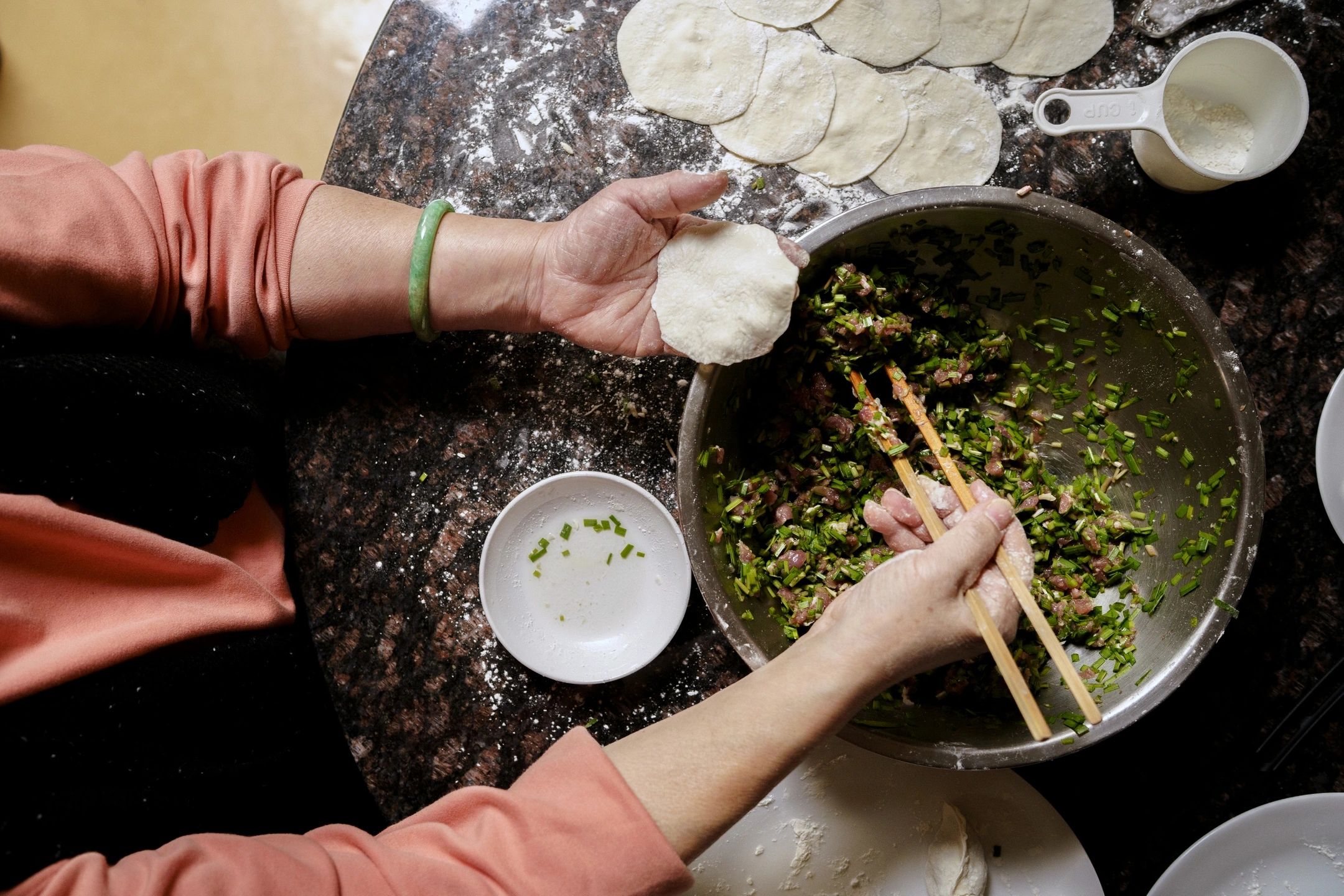There are only so many ways one can make student accommodation feel like home. The obligatory slightly parched plant, fluffy cushion and limp string of fairy lights are fair attempts but, as days begin to look more like nights and campus fills up with puffer-coat-cladded figures, there is only one way I know to stave off any feelings of seasonal homesickness: cooking.
The stereotype of the student cook – or non-cook – just doesn’t seem fair to me. The idea conjures images of rushed beige meals and burnt pizza. Sure, pesto pasta is practically a food group for us.
Yes, our cupboards are probably stocked with more pot noodles than any other demographic. Yet it is at college where I have seen food most used as a means of comfort and connection. It is a time when so much feels overwhelming: academics, societies, socialising and budgeting; and just trying to manage it all day by day.
For those of us who live away from home, meals can be the only predictable thing about a week (at Trinity, even class timetables hardly seem regular anymore). Meals are one of the few tools in our arsenal to make not only ourselves, but those around us, feel looked after.
This was particularly apparent to me last year as a fresher. One of the first photos in my camera roll from when I moved to Dublin is a saucepan filled to the brim with vegetarian chilli. I didn’t yet know if I would make friends, enjoy my course or successfully navigate my way around campus, but I did know how to follow a Jamie Oliver recipe. Filling the freezer with Tupperware of chilli also cemented in my mind that I was here for the long run, and it was up to me to make sure I was taken care of.
The instinct to use cooking to make myself feel provided for hasn’t ended in second year, and I know I am not alone. This may be reflected in the return to culinary childhood that I have witnessed among my peers recently. One friend has taken to eating Babybels, her quiet joy evident as she peels off the red wax. Last week, my packed lunch included a miniature pack of raisins every day, like I used to have when I was four. Albeit slightly comical, these small gestures toward childhood when someone else was in charge of our food, routine and hair provide the sense that one is just about on top of things, whilst also shattering the illusion that we are all mature adults with our lives sorted.
Cooking isn’t simply self-serving, though. When I think of some of the kindest people I know, it is often through food that they will offer support or express care. One friend made me a stir-fry when she knew I was nervous and had only eaten two falafels and a pack of Smarties that day.
When I was stuck isolating in my room in halls due to COVID-19, my American flatmate left me a piece of pumpkin pie outside my door, a small slice of human connection during a time that is lonely by necessity. For people often short on time and energy, one student cooking for another is like taking a book out of an arts student’s weighty tote bag. Not only does it take something off their plate (excuse the pun), but I will always deem the act of feeding someone a beautifully simple gift – even if the food isn’t always so nutritious.
Of course, cooking is practical. Depending on the ingredients you’re buying, it can be a fiscal luxury or a method of saving. It is virtually impossible to get a substantial lunch near campus for less than €5, so bringing in your own, and avoiding dinners out, is usually cheaper. But the benefits to cooking go beyond this, and the vast majority of students know that.
A dreary walk or Luas ride home is illuminated by the thought of dinner waiting at the end. It is not just the consumption of it, but the act of cooking itself which serves to separate the working day from the night.
For all the personal positives though, the greatest satisfaction that cooking brings is that of looking after another person, if only temporarily. Say what you will about the student cohort, but we know how to look out for each other. The idea that students don’t – or can’t – cook is a myth that obstructs a key kindness observed every day in our community.







